SUMMARY
This is AI generated summarization, which may have errors. For context, always refer to the full article.
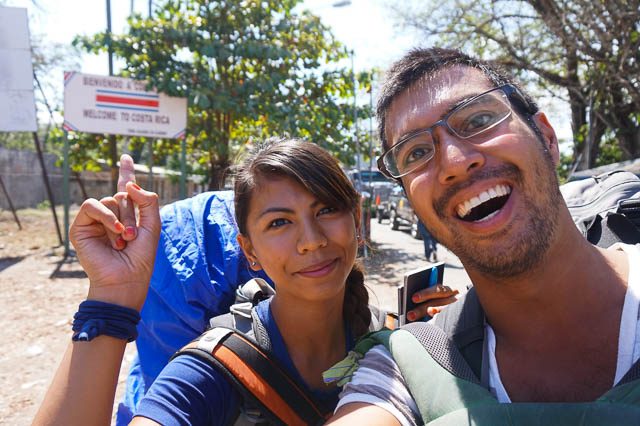
At the end of June 2014, my wife Camille and I started our one-year honeymoon. We planned on going to Africa, the States, Central and South America, and Europe. That’s a lot of ground to cover in a short period of time, and we were pretty optimistic (and a bit naive) about how much we would be able to travel. (READ: A year-long honeymoon: One traveling couple’s adventure)
We intended on only spending two to 3 months in Central America and have now been here for 5 months. We thought we would pass through Panama and ended renting an apartment for a month ring after crossing the Costa Rica border.
When embarking on an epic trip as long as a year, there are many considerations to take into account, including money, time, and travel style.
The biggest lesson we’ve learned is that we never know what will happen when we wake up. Each day is different, and things may not go as planned. You can never predict the future and fully control the next 24 hours, let alone an entire journey.
Our advice is move slow, move local. Be where you want to be. If you’re not, move on to the next place this wonderful world has to offer.
People think we are crazy to take a year-long honeymoon but because of our current situation, we’ve come to the conclusion that 365 travel dates isn’t nearly long enough. Our solution to this dilemma is to extend our trip for another 6-9 months, maybe even another year.
Did we budget this? Heck no, we didn’t. But we’re finding that if you take time out of the equation, the possibilities are endless.
We can work on the road whenever we get weary of travel, we can settle down for a few weeks at a time on the beach or in the mountains. We can volunteer with children and work on farm projects (here’s a list of ideas on how you can volunteer and work).
In Africa, we planned about a month of our 2.5-month trip. We got to stay on the beach for nearly 30 days, volunteer at a school, and spend time at a children’s home. We can do so many things that enrich our lives and the lives of others without spending or getting paid. To spread that kind of love is free and to have these experiences, priceless.
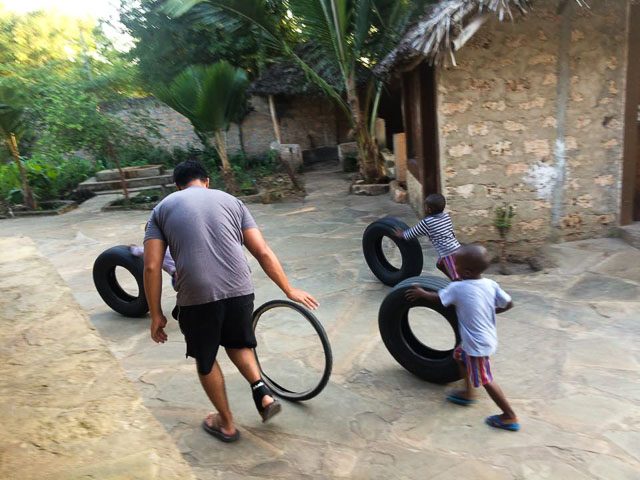
So here we are on our 10th month of travel and we’ve been in Boquete, Panama for over a month now. We decided to spend a month in one of the world’s best coffee regions and fell in love with the region and its people.
Unexpectedly, we rented a 2-bedroom apartment for a month. During this time we started pouring our hearts out through our blog, social media, and other digital channels. We we’re blessed enough to have our audience grow and even more fortunate to start receiving some financial compensation.
In our first two weeks we had the apartment all to ourselves and then started renting out the spare room to other travelers for cheaper than they would get at a hostel. Through some patience and and some entrepreneurship, we were able to get a nice chunk of our rent paid by others.
In addition, we met locals that needed help with their small businesses. We started doing some social media marketing for a couple and even created a website for an artist trying to sell his art. We did work in exchange for a stay at a hotel for a few days and even bartered for a coffee tour.
We realized that if we went slower we could literally keep this trip going for as long as we wanted it to. Of course, doing so requires some sacrifice which we are constantly negotiating in our heads and our daily conversations.
Our next stop after Panama is Colombia, where we are entertaining the idea of working, teaching conversational English to university students in Bogota. The pay is more than what we would spend in a month in most Central and South American countries. The best part is that it’s only a 6-week job so we can get to know the city, have weekend trips to neighboring regions, and save some money.
Our daily walk and travel style are really quite simple. When in transit we nearly always take local transportation, and sometimes we even hitch-hike. While we love staying at hostels, we prefer a local guesthouse, conversing with owners and locals in their language and eating their food.
We seek out these places to get better prices and a better immersion in the culture.
If we see a tour we like, instead of immediately booking through a hostel or a tour company we ask locals how we can do a DIY tour. While we were in Panama, there were a few hikes that we wanted to do. We saw they were $20-30 a person and ended up finding the place on our own by asking about local transportation options.
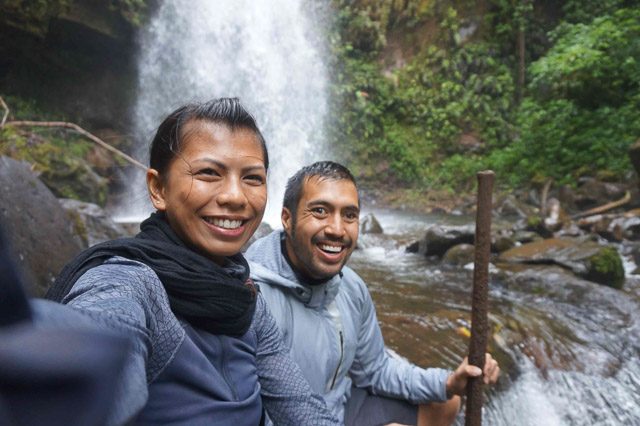
We ended spending $8 for the bus to and from town and for the $5 entrance. The first time we did this we ended up 200 meters short to the entrance of the trail (The 3 Lost Waterfalls) we intended on going. We ended up on a less explored trail and would end up doing the lost waterfalls a few days later. Our total cost for both hikes was less than the price of one tour.
Just recently, we went on a hike in Panama and ended up getting lost (not reaching our intended destination) but were still rewarded with a beautiful end at a waterfall. We ended up going back to the original hike we wanted to join. To have done it through a hostel or tour company would have cost us $20-30 bucks. We ended getting a bus to and from the entrance for $8 each including the $5 entrance into the trail.
In the States, we shared a lot of our meals because they were so big. In Central America we do this less because the prices are cheaper and the meals are smaller. If we share and it’s not enough, I’ll give Camille as much as she needs to be full and will go to the tienda and buy some fruit – usually a banana or two will do the job.
We continue to find opportunities everywhere simply by talking to people, hearing their stories, and telling them ours. To share is to love. We break bread and see where we fit in each other’s lives. Sometimes when we find out ways we can help others and an exchange happens. We are always very optimistic and know that even if we didn’t have any money in our pockets God would see our hearts, know our worries and provide us with more than we need.
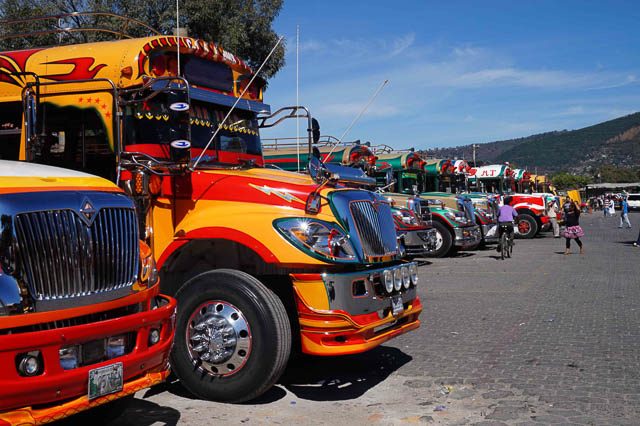
All it takes is to look up open your arms and allow the world to embrace you with the love it has to give.
Sometimes we simply need to ask, not as a way of begging but as a way of collaboration. This puts both parties in a position to trust and love. Camille and I always emphasize that you don’t need to be “rich” to travel.
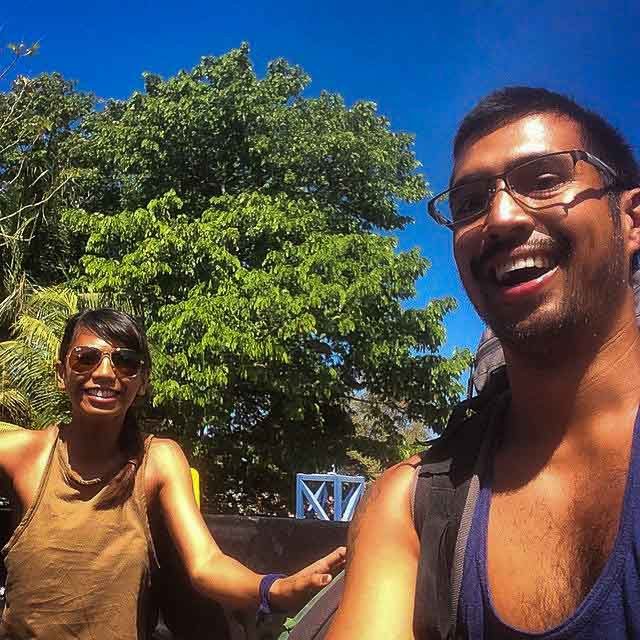
The reason you don’t feel rich is because you’ve allowed the world to define what it means to be rich. Changing your view on this will change your journey, your lifestyle, and your ability to travel. – Rappler.com
Add a comment
How does this make you feel?

There are no comments yet. Add your comment to start the conversation.